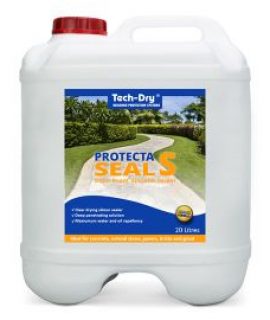Masonry Sealer VS Waterproof Concrete- Choosing the Right Defense for Your Project
When it comes to protecting your concrete or masonry surfaces, understanding the difference between masonry sealer and water proof concrete is crucial. Both offer protection, but they excel in different battlegrounds. Let's break down their strengths and weaknesses to help you choose the champion for your project.
The Sealant Specialist: Masonry Sealer

Imagine a shield that repels light moisture and keeps your surfaces looking sharp. That's the essence of a masonry sealer. Here's how it defends your castle walls:
- Defence Against the Elements: Masonry sealer creates a barrier that repels water, preventing surface damage from rain, snowmelt, and minor spills. This is particularly important for porous materials like brick, which can absorb water and crack under freezing temperatures.
- Beauty Boost: Many sealers come in a variety of finishes, enhancing the natural beauty of your brick or stonework. They can also minimize the appearance of minor imperfections and make cleaning easier.
- Limited Scope: While effective against light moisture, masonry sealers are not designed for heavy-duty waterproofing. They won't withstand constant water pressure or submerged conditions.
The Waterproofing Warrior: Waterproof Concrete
When you need an impenetrable fortress against water infiltration, waterproof concrete steps up to the fight. Here's its arsenal:
- Hydrostatic Hero: Waterproof concrete is a special concrete mix or coating specifically designed to repel water under pressure. This makes it ideal for foundations, basements, retaining walls, or any structure in constant contact with moisture.
- Multi-Layered Defense: Depending on the application, waterproofing concrete can involve a multi-step process with membranes, coatings, or sealants. This creates a robust barrier that shields your structure from the relentless assault of water.
- Breathable But Battling: Some advanced waterproofing solutions allow trapped moisture vapour to escape while still repelling liquid water. This prevents moisture build-up within the concrete and subsequent damage.
- Heavyweight Considerations: Applying waterproof concrete can be a more complex and expensive process compared to a simple sealer. It's often best suited for professional installation in critical areas.
Consulting a professional is always recommended, especially for complex waterproofing projects. They can assess your needs and recommend the most appropriate defence for your specific battlefield. With the right knowledge and reinforcements, you can ensure your concrete or masonry project stands strong for years to come.

Comments
Post a Comment